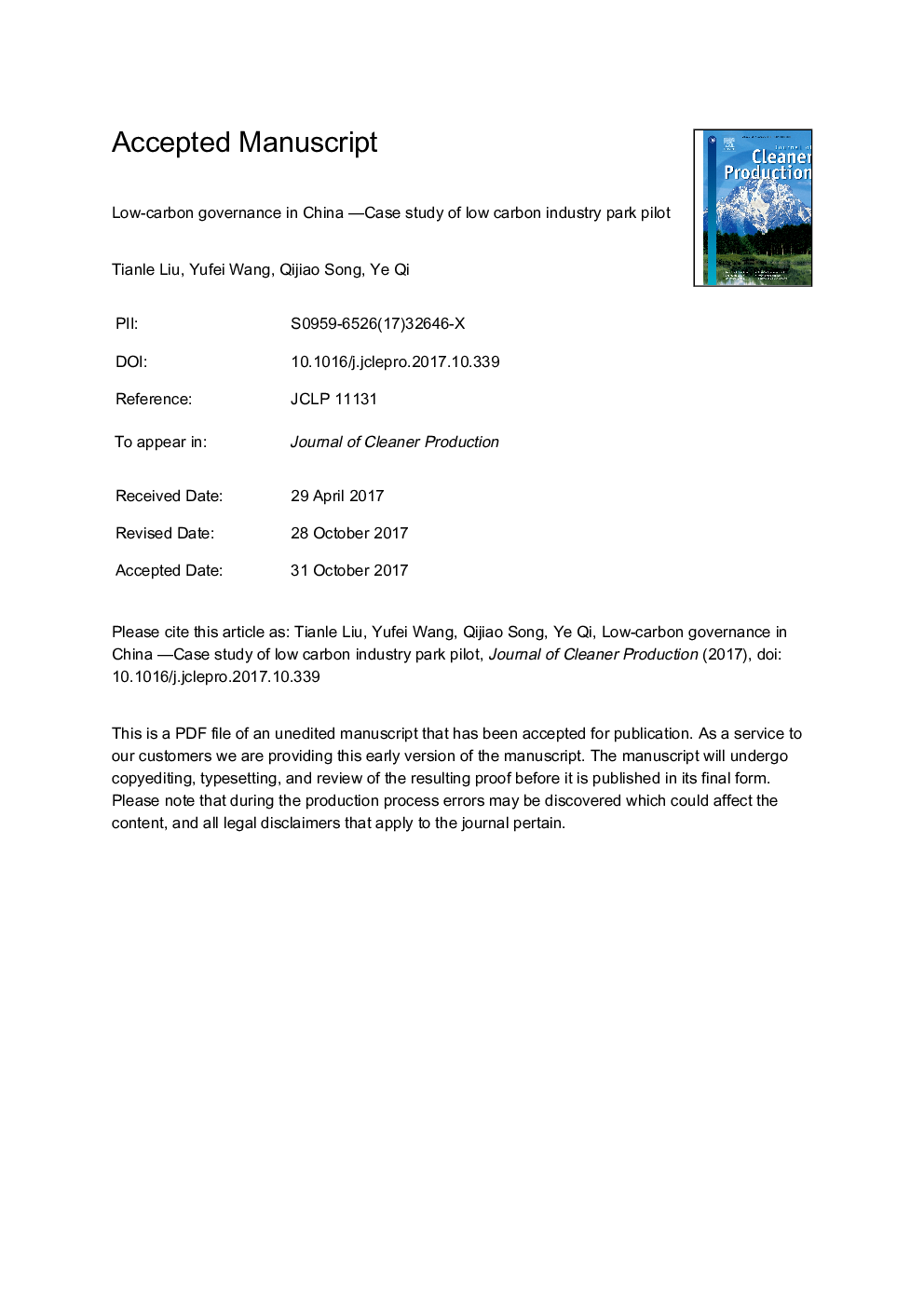| Article ID | Journal | Published Year | Pages | File Type |
|---|---|---|---|---|
| 8099621 | Journal of Cleaner Production | 2018 | 31 Pages |
Abstract
The paper analyzes the framework by using Suzhou Industry Park (SIP) as case study which is a very important part of low carbon management of cities. Although the total CO2 amount in the Park has increased, its CO2 intensity per unit GDP has been reduced in recent years after the efforts made by its Park Council and enterprisers. The policy implementation indicates that the guidance role of local governments and the process are still based on a top-down management at park level, although the National Development and Reform Commission (NDRC) hopes to carry out pilot program and summarize experiences from a bottom-up mechanism. Target Responsibility System (TRS) is still the key working mechanism and makes contribution to the reduction of CO2 per unit GDP. The low-carbon governance experiences of SIP can be learned by other cities, while local government displays positive attitudes towards low-carbon practices.
Related Topics
Physical Sciences and Engineering
Energy
Renewable Energy, Sustainability and the Environment
Authors
Tianle Liu, Yufei Wang, Qijiao Song, Ye Qi,
